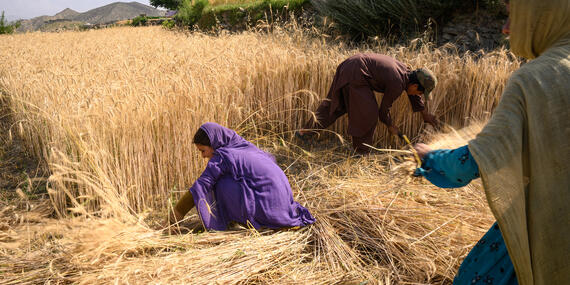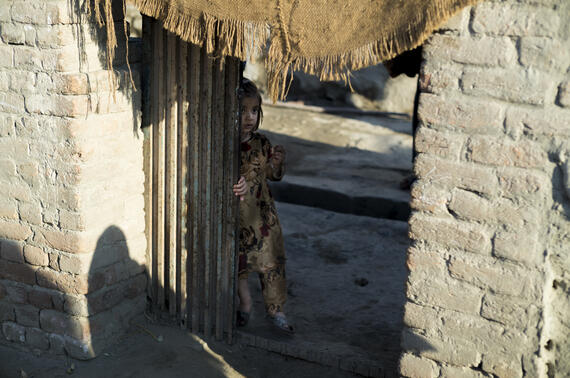Afghanistan: An aid worker's resolve to choose courage over fear

“Change will not come overnight, but we need to have patience, resilience and hope that eventually the situation will change for the better.”
These are the words of Haya,* a Public Information Officer with the UN in Afghanistan, passionate about humanitarian work. Since 2014, Haya has worked with various UN entities as a Legal Officer, an Information Management and Donor Reports Officer, and a Peace and Reconciliation Officer. She has taken on various responsibilities, including data collection through outreach with women across Afghanistan, which informed reports that guide the UN’s decision-making and advocacy on women's rights and gender mainstreaming.
The investment in Haya’s education by her parents and herself transformed her life, enabling and inspiring her to pursue an undergraduate and postgraduate degree, and now a second postgraduate degree in humanitarian aid.
However, these achievements have been filled with challenges. In August 2021, Haya and her family were severely affected by the de facto authorities’ (DfA) takeover in Afghanistan. Since coming into power, the DfA have imposed restrictions on the basic rights and freedoms of women and girls, including restricting their access to secondary and most tertiary education, limiting employment opportunities and restricting freedom of movement.
As a result, Haya was forced to work remotely and be away from the office for at least two months. When she returned, she had to make tough decisions, including whether or not to leave the country. But as the oldest of four sisters and the family’s breadwinner, Haya decided that leaving her parents and sisters was not an option.
She explained: “I was very unhappy with the DfA’s restrictions on women working. However, as one of the few women who came back to work when the option was presented, I knew that even though my fight-or-flight response was triggered, I had to stay and fight – not just for me but also for my sisters.”

Since deciding to stay, Haya has made significant progress in her career, despite the rapidly shrinking space for Afghan women and girls. She now works on a variety of projects, including documenting Afghan women's stories and testimonies, engaging the media and highlighting various thematic topics. As well as advocating for women's contributions to society, Haya’s efforts contribute to fundraising campaigns.
While advancing in her career, Haya has not left others behind. She explains: “I see the value of the investment in my education, so I also invested in my sister, who studied medicine, by paying for her university education. Now that she’s graduated, she’s joined other female doctors on a part-time and volunteer basis in local government and private hospitals, where she serves her community.”
Quoting a local saying, Haya emphasizes: “If you support one human, you support all of humanity.”
Her sister is not only helping her family but the entire community, despite the DfA’s restrictions.
Afghan women who work for the UN are now working more regularly, according to Haya. However, changes to the DfA's imposed bans are yet to be implemented. Women have occasionally protested the regulations though usually in small groups and indoors, driven by the fear of facing retaliation.
“I encourage educated women to try and be independent to the best of their abilities,” said Haya. “They must be their own primary responders, relying on their own strength and resourcefulness before seeking external assistance. This self-reliance is key to navigating challenging situations with resilience and determination.”
*Name has been changed.
